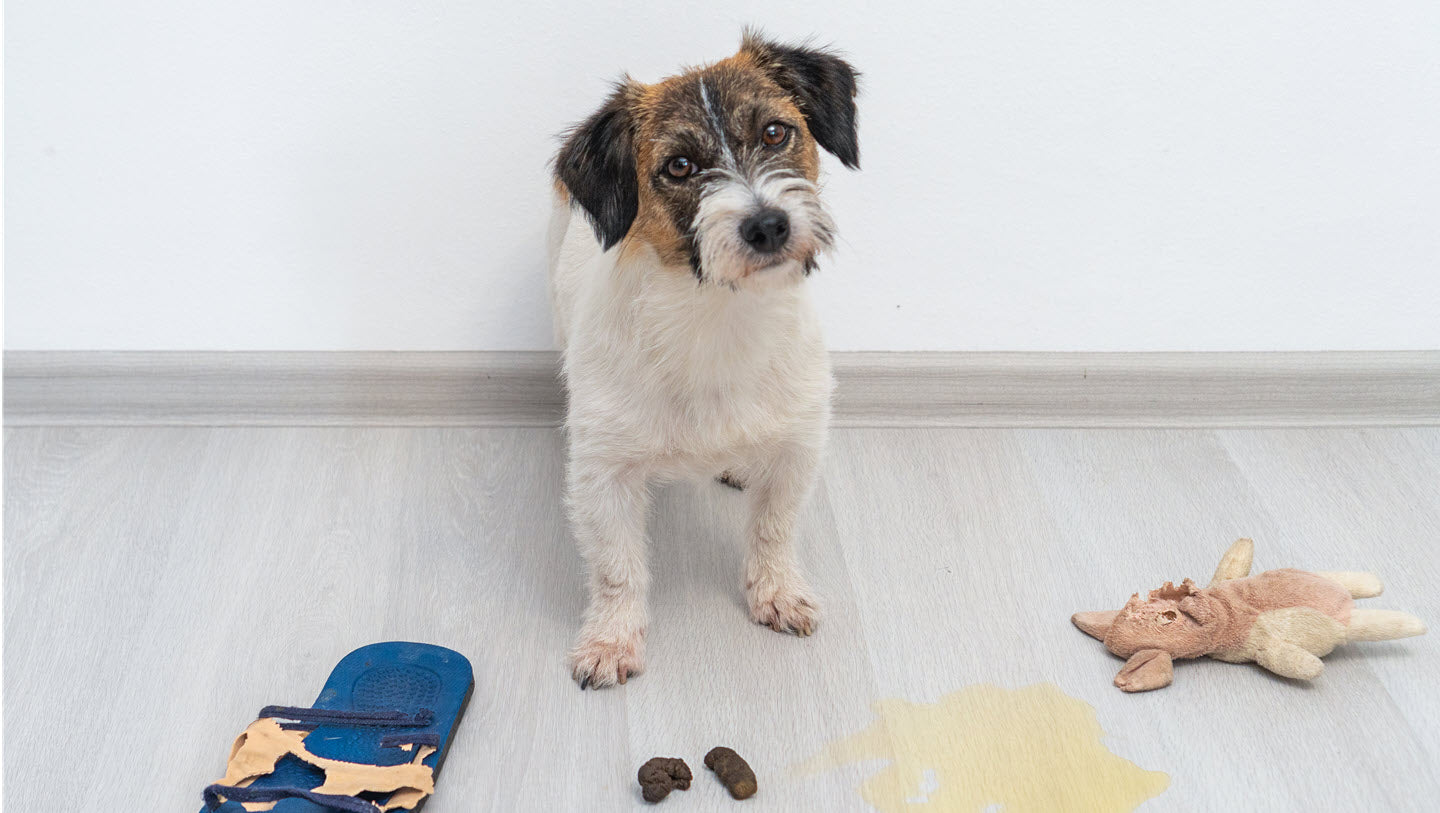
What Dog Owners Need to Know About Dog Anxiety
What Dog Owners Need to Know About Dog Anxiety
Like their owners, dogs can also feel anxious and nervous. Anxiety can come in at any time and each dog react to it differently. While the feeling does go away, there are dogs who feel anxious all the time to the point it affects their behavior.
But, how do we know if our dogs have anxiety? Can it be treated? Here are some of the things dog owners need to know about dog anxiety:
What Causes Dog Anxiety
Dog anxiety can be caused by a variety of factors. Usually, it is triggered by fear, aging and separation.
Fear-related anxiety can be triggered by the following:
- New people and animals
- New environments
- Situations like going to the vet or going for a walk
- Uncommon surfaces
- Loud noises
Aging-related anxiety is often caused by cognitive dysfunction syndrome (CDS). When a dog has this condition, their memory, perception, awareness and learning is slowly declining. It can be compared to Alzheimer's disease. If your dog has this, they will often be confused and anxious.
Separation anxiety happens when a dog is often left alone with no one to comfort them. It also happens if they are separated from their owners even for a short period of time. Using a natural product in their diet such as Ewegurt Sheep’s Milk Yogurt Anxiety Relief Treat and Food Topper with Emu can help greatly in soothing your pet’s nerves.
What Are The Symptoms
To determine if your dog has anxiety, here are the most common symptoms:
- Drooling
- Depression
- Pacing
- Repetitive behavior
- Excessive barking
- Destructive behavior
- Aggression
- Urinating or defecating in the house
- Panting
- Restlessness
Some of these symptoms often happen after the dog experiences an anxiety-triggering event. However, dogs with anxiety may exhibit these symptoms continuously and lead to serious problems. Aggression is the most dangerous symptom a dog can exhibit when they have anxiety. They may attack people and other animals or growl at them.
Meanwhile, urinating and defecating around the house is common for dogs with separation anxiety. As the dog becomes restless, they will end up doing the act even if they have been house broken. Some dogs may also destroy several items around the house if they have separation anxiety and may lead to attempts to break out of the house.
How Can It Be Treated?
Fortunately, there are ways to treat dog anxiety. Your dog's veterinarian can look into your dog's condition and determine what caused the anxiety to happen. Once they have identified the cause, they will be able to give you advice on how to help your dogs.
Dog anxiety is quite complex and can be triggered by a lot of factors. Because of this, vets may recommend a treatment plan for your dogs to follow. Some of the treatments they can recommend include training, medication and preventive measures.
Training
Counterconditioning training is one way in helping dogs fight their anxiety. During this training, owners can shift their dog's response to anxiety triggers by replacing their behavior for something easier to handle.
Another form of training for dog anxiety is desensitization. In this training, owners will slowly help dogs with their anxiety by exposing them to the anxiety trigger in various doses. As the dog gets used to the trigger, they will get rewarded and find it easier to manage their anxiety.
Before you do these trainings, it is advisable that you reach out to a professional dog trainer. They can advise you on how to train your dogs based on their anxiety triggers.
Medication
For dogs who have serious anxiety, they may be given natural therapies or medication by their veterinarians. Fluoxetine and clomiparamine are often prescribed to dogs, with benzodiazepine given to stress caused by loud noises. Dogs with CDS are given selegiline to reduce the impacts of its symptoms.
Natural therapies can also help dogs with anxiety. These therapies often include the use of products with pheromones or aromatherapy. If you are planning to get one, talk to your veterinarian to see what is best. Some examples of natural products that you can try out are Espree Calming Balm for Pets and ThunderShirts for Dogs.
Final thoughts
Anxiety is a common feeling humans and dogs will experience at one point. For dogs, anxiety disorder is rare but, it can change your dog's behavior if it is not discovered immediately.
Make it a point to monitor your dog's behavior and act quickly if you think they have anxiety problems. This will help you help your pet manage their anxiety and give them all the support you can to get through this problem.







